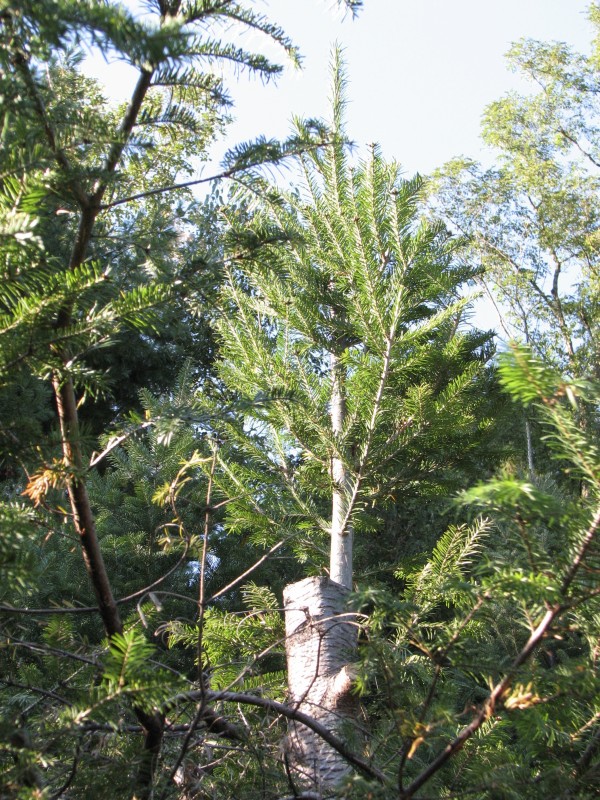Episode 125: Teaching A School To Be Trauma Informed; Advocates Work To Keep The Heat On For Low-Income Gas Customers

This week: we hear from a family in Rhode Island struggling to pay the bills to keep the power on. We also discuss an offshore wind auction that broke records.
And, we’ll travel to Tijuana, where migrants who are waiting to apply for asylum are getting legal advice from students and teachers from Boston. Plus, we visit a “trauma-informed” school in western Massachusetts.
Finally, we find an unusual way to harvest Christmas trees.
It’s NEXT.
Low-Income Customers Struggle to Keep Power On

Kennekca Kindell (right) and her 14-year-old daughter, Kanija Kindell, visit the Dunkin’ Donuts in Pawtucket where Kennekca works. Photo by Avory Brookins for The Public’s Radio
It’s been a bad fall for gas customers in a big chunk of our region. In September, a series of explosions across the Merrimack Valley in Massachusetts destroyed homes, killing one person and injuring dozens. Only now is service being fully restored to those Columbia Gas customers. Meanwhile, one of the state’s other big gas companies, National Grid, has locked out more than 1,200 workers who inspect gas lines for safety.
In Rhode Island, a consumer-rights group is working to keep National Grid from shutting off service to low-income customers who can’t afford to pay their bills but also can’t afford to be without heat.
From The Public’s Radio in Rhode Island, Avory Brookins reports.
Seismic Testing and the Risks to an Endangered Whale
At the end of November, the Trump administration approved the first step towards oil drilling in the Atlantic ocean, allowing companies to conduct what are called “seismic tests.” Since the announcement, aquariums around the East Coast voiced concerns that the tests could be harmful to a variety of marine animals, including an animal we’ve talked about a lot: the endangered North Atlantic right whale.
We called up Darlene Ketten, Senior Scientist at the Woods Hole Oceanographic Institution, to learn more about what these seismic tests mean for marine animals.
Wind Auction Breaks Records
A wind power auction for three plots of ocean off of the coast of Massachusetts broke a record last week for the highest price ever paid in a U.S. wind lease auction. Just three years ago, in 2015, those same lots were up for auction and didn’t sell.
So what changed in the past three years? And what does it mean for offshore wind?
Barbara Moran, the senior producing editor for WBUR’s environmental vertical, joined us to discuss what happened.
Migrants Wait to Apply for Asylum in Tijuana
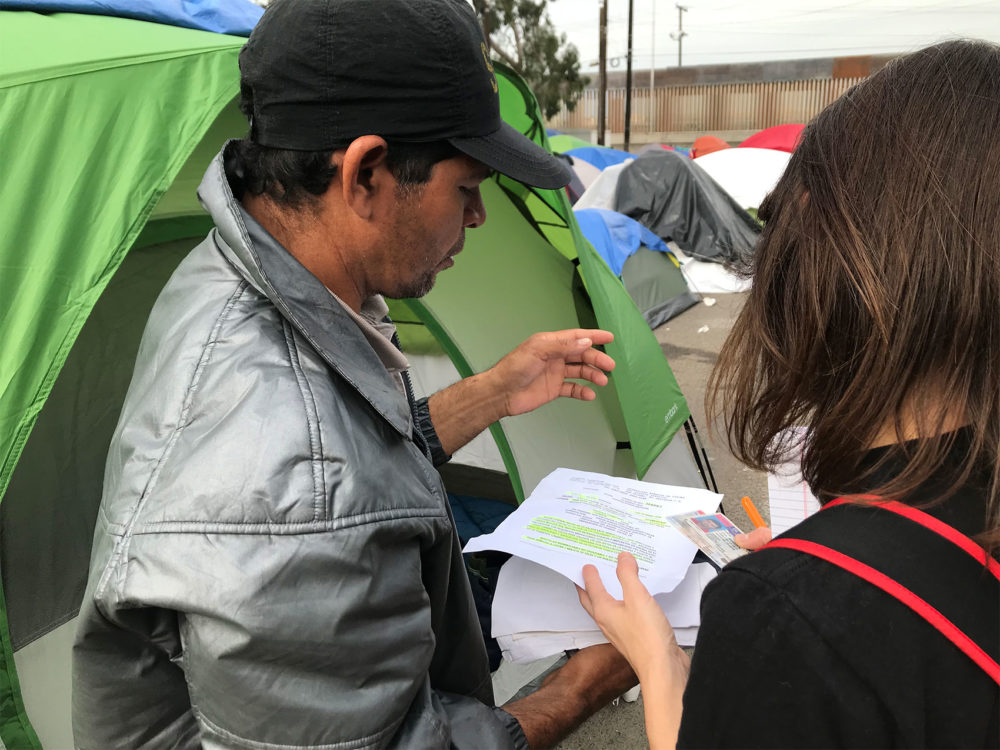
Edgar Vanegas is from El Salvador but says he lived in Danbury, Connecticut, for a few years. He traveled north with the migrant caravan. Photo by Shannon Dooling for WBUR
Thousands of migrants, many of them from Central America, are waiting in Tijuana, Mexico, for a chance to apply for asylum in the U.S. It’s a fluid situation on the ground there.
Many of the migrants are shuffling between tents and shelters and volunteers are passing out meals and warm clothing. A group of Boston University law instructors and students was in Tijuana over the weekend offering legal advice. WBUR’s Shannon Dooling was there and has the report.
Mexican Consulate Visits Middlebury, Vermont
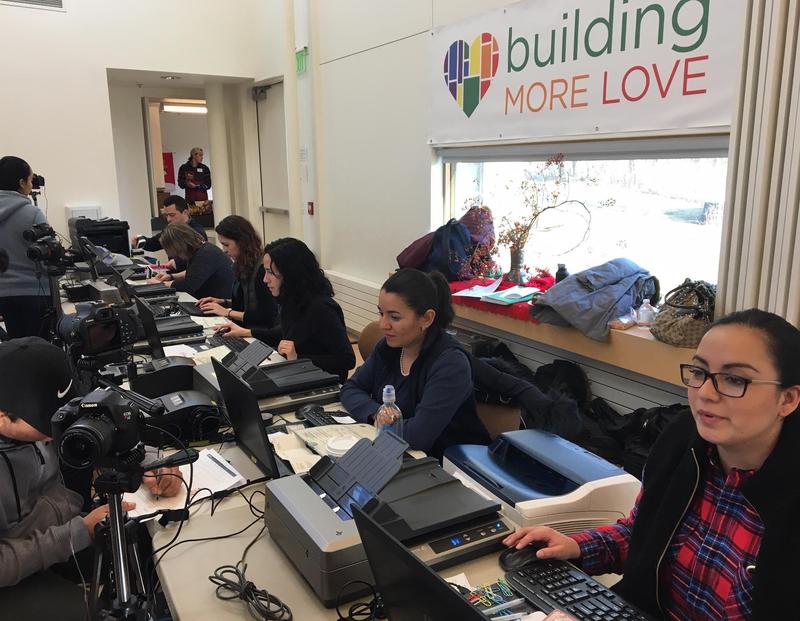
The Mexican government sets up a mobile consulate office twice a year in Vermont to help its citizens renew passports and to provide other services. Photo by John Dillon for VPR
Officials from the Mexican government come to Vermont a few times a year to help farmworkers, who are Mexican citizens, to renew their passports or obtain other documents. The event is also a social gathering for the workers who spend much of their time in isolation on farms throughout the state.
But as VPR’s John Dillon reports, this year’s mobile consulate comes at a time of increasing tension for Mexicans in Vermont.
How a School in Massachusetts Became “Trauma-Informed”
For many people who live outside Massachusetts’ westernmost county, “The Berkshires” evokes images of beautiful rolling hills and world-renowned arts venues. And that’s all true. But a group of locals are recognizing a more worrisome aspect of the region: the trauma many residents live with. They’re joining a national trend of communities that preach empathy, awareness, and patience.
We visit an elementary school in Berkshire county that is trying to create a kinder environment, and not just for kids under stress. New England Public Radio’s Karen Brown has the report.
That piece is part of a week-long series from New England Public Radio’s Karen Brown that looks at the genesis of a campaign called, “Trauma-informed Berkshires.” You can find the other pieces of the series here.
Tiny Trees Grow in Popularity
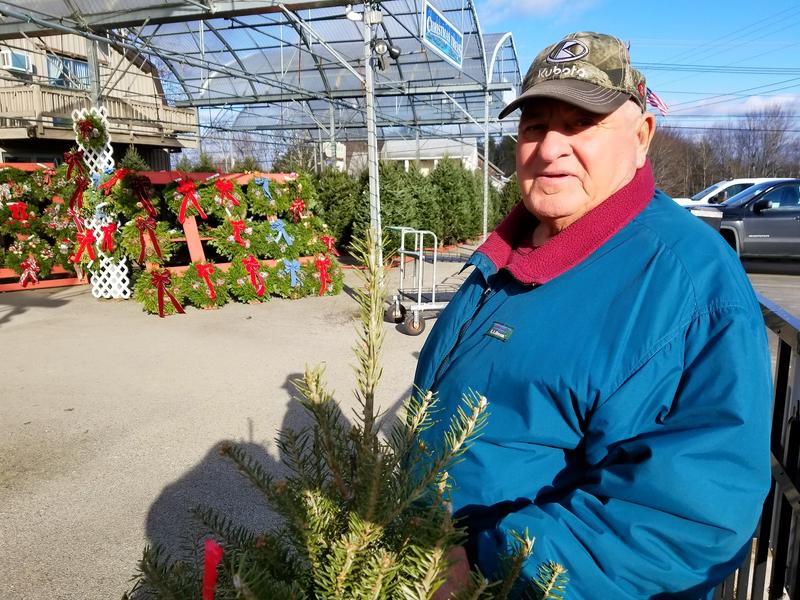
Dana Graves, co-owner of G&S Christmas Tree Farm, supplies Sprague’s Nursery in Bangor with a range of tree sizes, but he says it’s rare these days for people ask for a tree that reaches the ceiling. Photo by Jennifer Mitchell for Maine Public
Picture the classic Victorian Christmas: a stately evergreen in the grandest room of the family home, with thick boughs reaching up almost touching the ceiling. It’s a pretty vision, but these days the trend sees more consumers downsizing, even opting for tiny, potted trees that can be replanted. Maine Public’s Jennifer Mitchell reports on the growing market for tiny trees.
A More Sustainable Way to Cut Christmas Trees
What if there was a sustainable way to go out and get a decorative Christmas tree that leaves it alive? We found a Massachusetts Christmas tree farm that does just this.
It’s a technique called coppicing, and Emmet Van Driesche, the owner of the Pieropan Christmas Tree Farm, joined us to tell us more about the practice.
Encountering a Decorated Tree in the Woods
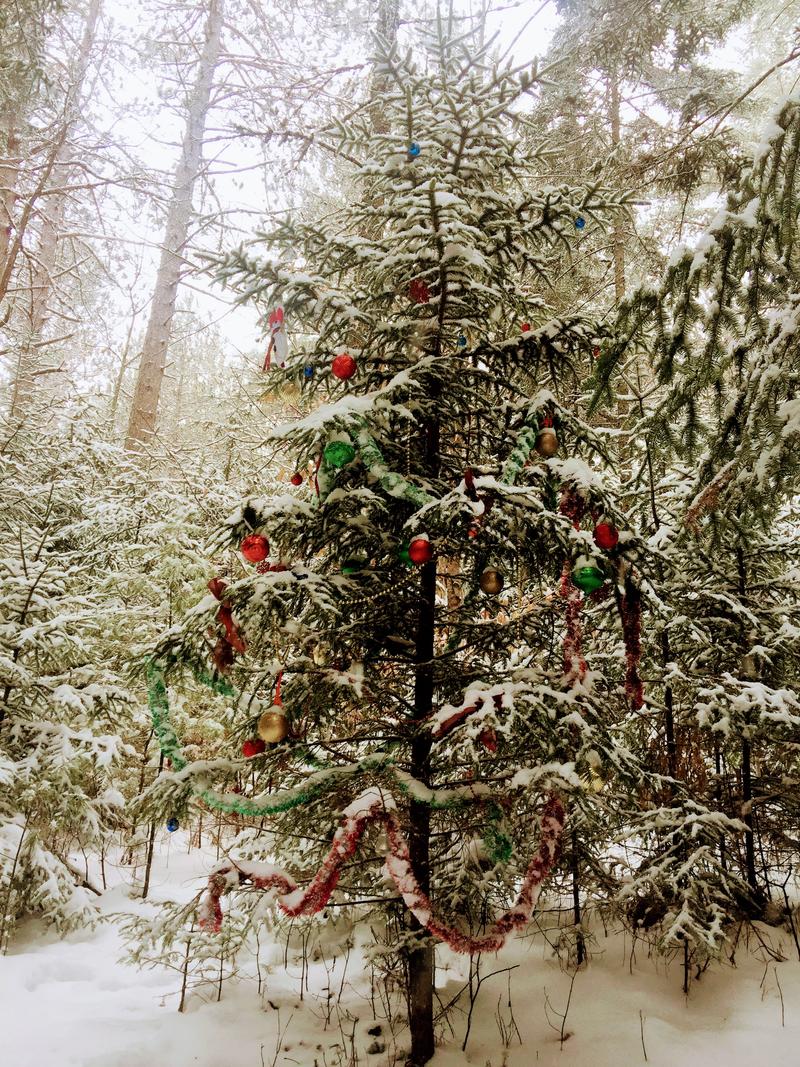
This tree was found about a half mile up the Pine Flats Ski Trail leaving off from the Smarts Brook Trailhead. Photo by Sean Hurley for NHPR
Reporter Sean Hurley was walking through the New Hampshire woods when he came across an unusual festive sight. He produced this piece back in 2016, but he told us that this year he found another two trees decorated in those same woods.
Photo at the top of the page: Teacher Jessica Pollard at Lee Elementary School leads her class in a mindfulness exercise. Photo by Karen Brown for NEPR
About NEXT
NEXT is produced at Connecticut Public Radio
Host: John Dankosky
Producer: Lily Tyson
Digital Producer: Carlos Mejia
Senior Director: Catie Talarski
Contributors to this episode: Avory Brookins, Barbara Moran, Shannon Dooling, John Dillon, Karen Brown, Jennifer Mitchell, Sean Hurley
Music: Todd Merrell, “New England” by Goodnight Blue Moon, “Lua” by Bright Eyes, “Hickory Wind” by Regina Carter, “Puzzles” by Craig D’Andrea, “Sound & Color” by Alabama Shakes
—
New to NEXT? You can find every episode or one you missed within our archives.
We need your feedback! Send critiques, suggestions, questions, and ideas to next@ctpublic.org. Help us spread the word! If you like what you hear, rate and review us on iTunes.
Follow us on Facebook and Twitter.





